On June 9, for the first-time government, public health and business leaders, heads of UN agencies and advocates are coming together at United Nations (UN) Headquarters to acknowledge HIV/TB as an urgent priority. This first HIV/TB Global Leaders' Forum, convened by Dr Jorge Sampaio, the UN Secretary-General's Special Envoy to Stop TB, seeks to galvanize leadership at all levels.
The 2008 Anti-Tuberculosis Drug Resistance in the World report and the 2008 Global Tuberculosis Epidemic report of World Health Organization (WHO) clearly mandates much heightened urgency in responding to TB-HIV co-infection.
India continues to have the highest TB burden in the world. TB is the leading cause of death among people living with HIV (PLHIV). Approximately one third of the nearly 40 million PLHIV are also infected with TB. In high TB and HIV burden settings, up to 80% of TB patients may be co-infected with HIV and half of AIDS-related deaths are caused by TB.
Without proper treatment with anti-TB drugs, approximately 90% of people living with HIV die within two to three months of becoming sick with TB, even if they are receiving anti-retroviral treatment. Worldwide, nearly a quarter of a million people die from HIV/TB co-infection each year. This dual threat is a barrier to keeping people healthy and productive, and impacts poverty reduction plans and the broader development agenda. However, adequate treatment of TB in PLHIV has shown to prolong their life by at least two years.
HIV weakens the immune system and makes it more likely that latent TB infection progresses to active TB disease. PLHIV are up to 50 times more likely to develop TB disease over their lifetime.
Even where DOTS [directly-observed treatment short-course] programmes are available, current diagnostic tests fail to detect active TB in 60-80% of PLHIV due to the predominantly smear-negative nature of TB in this group.
Studies suggest that transmission of TB, especially the drug-resistant strains is more likely to take place where PLHIV congregate. Healthcare settings, for example anti-retroviral (ARV) clinics, are one such place where improper infection control can put PLHIV at risk of contracting TB. Improving infection control in healthcare settings is clearly vital, doable and potentially life saving.
In many countries insufficient laboratory capacity to test drug-resistance is a serious impediment in scaling up TB programmes. Developing laboratories to provide rapid diagnosis of anti-TB drug-resistance, particularly for PLHIV, is of utmost importance to improve TB responses.
Many countries including India are making impressive gains in treating people living with HIV, but this investment and progress is squandered by a preventable and curable disease: TB.
A number of studies, including one released by the World Bank last month, have found that the direct and indirect costs of inaction on HIV are far greater than the costs of treatment. As for TB, a 2007 World Bank research report clearly demonstrated that countries heavily affected by TB could collect at least 9 times their investments in TB control.
There are well-established approaches for preventing deaths from HIV/TB. PLHIV need to be screened regularly for TB. Those who are sick with TB need effective TB treatment and those without TB disease should receive TB preventive therapy. These treatments are not expensive. A six-month course of TB treatment costs US$ 20; and preventive drug therapy costs US$ 2.
But progress remains slow on the more challenging front of detecting and treating TB among people cared for in HIV treatment settings. In 2006, only 1% of people living with HIV were screened for TB worldwide, according to WHO estimates.
New strategies and tools are urgently needed to tackle the challenge of TB/HIV co-infection. WHO-recommended collaborative TB/HIV activities must be accelerated, and research stepped up to deliver a new generation of effective anti-TB drugs and diagnostics to keep co-infected people alive. Closer coordination between national TB and HIV programmes and services is vital.
The 2008 Anti-Tuberculosis Drug Resistance in the World report and the 2008 Global Tuberculosis Epidemic report of World Health Organization (WHO) clearly mandates much heightened urgency in responding to TB-HIV co-infection.
India continues to have the highest TB burden in the world. TB is the leading cause of death among people living with HIV (PLHIV). Approximately one third of the nearly 40 million PLHIV are also infected with TB. In high TB and HIV burden settings, up to 80% of TB patients may be co-infected with HIV and half of AIDS-related deaths are caused by TB.
Without proper treatment with anti-TB drugs, approximately 90% of people living with HIV die within two to three months of becoming sick with TB, even if they are receiving anti-retroviral treatment. Worldwide, nearly a quarter of a million people die from HIV/TB co-infection each year. This dual threat is a barrier to keeping people healthy and productive, and impacts poverty reduction plans and the broader development agenda. However, adequate treatment of TB in PLHIV has shown to prolong their life by at least two years.
HIV weakens the immune system and makes it more likely that latent TB infection progresses to active TB disease. PLHIV are up to 50 times more likely to develop TB disease over their lifetime.
Even where DOTS [directly-observed treatment short-course] programmes are available, current diagnostic tests fail to detect active TB in 60-80% of PLHIV due to the predominantly smear-negative nature of TB in this group.
Studies suggest that transmission of TB, especially the drug-resistant strains is more likely to take place where PLHIV congregate. Healthcare settings, for example anti-retroviral (ARV) clinics, are one such place where improper infection control can put PLHIV at risk of contracting TB. Improving infection control in healthcare settings is clearly vital, doable and potentially life saving.
In many countries insufficient laboratory capacity to test drug-resistance is a serious impediment in scaling up TB programmes. Developing laboratories to provide rapid diagnosis of anti-TB drug-resistance, particularly for PLHIV, is of utmost importance to improve TB responses.
Many countries including India are making impressive gains in treating people living with HIV, but this investment and progress is squandered by a preventable and curable disease: TB.
A number of studies, including one released by the World Bank last month, have found that the direct and indirect costs of inaction on HIV are far greater than the costs of treatment. As for TB, a 2007 World Bank research report clearly demonstrated that countries heavily affected by TB could collect at least 9 times their investments in TB control.
There are well-established approaches for preventing deaths from HIV/TB. PLHIV need to be screened regularly for TB. Those who are sick with TB need effective TB treatment and those without TB disease should receive TB preventive therapy. These treatments are not expensive. A six-month course of TB treatment costs US$ 20; and preventive drug therapy costs US$ 2.
But progress remains slow on the more challenging front of detecting and treating TB among people cared for in HIV treatment settings. In 2006, only 1% of people living with HIV were screened for TB worldwide, according to WHO estimates.
New strategies and tools are urgently needed to tackle the challenge of TB/HIV co-infection. WHO-recommended collaborative TB/HIV activities must be accelerated, and research stepped up to deliver a new generation of effective anti-TB drugs and diagnostics to keep co-infected people alive. Closer coordination between national TB and HIV programmes and services is vital.
- 8957 reads


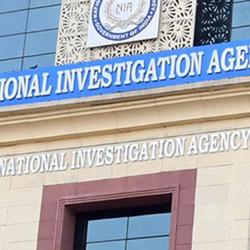

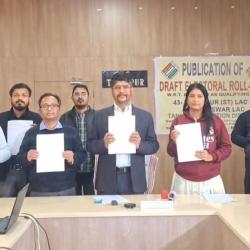
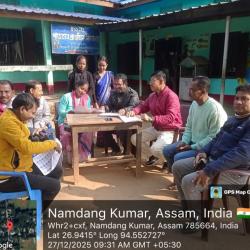

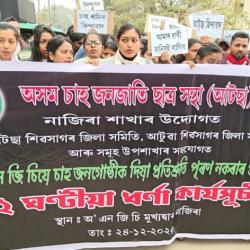
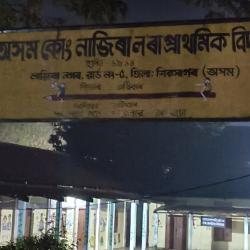

Add new comment